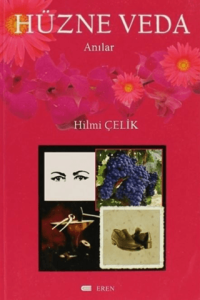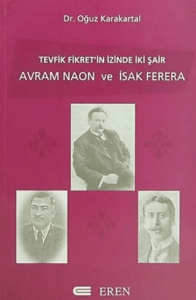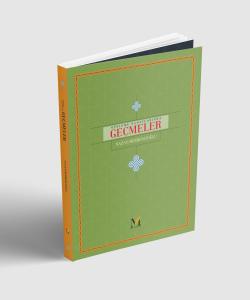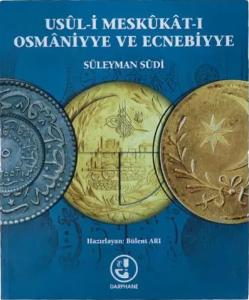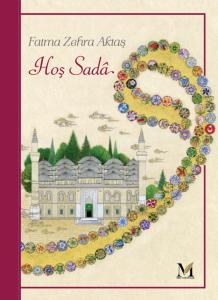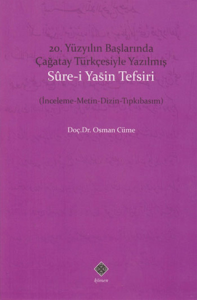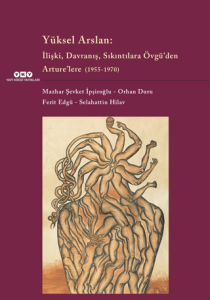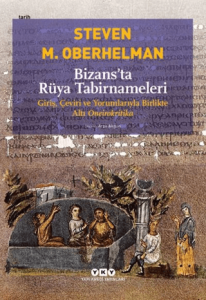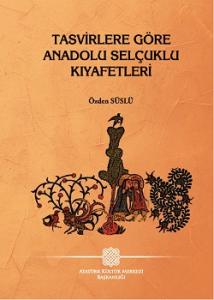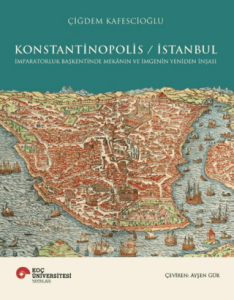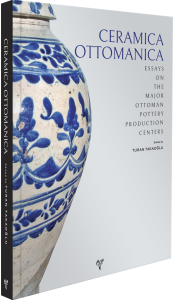
The eight articles and book chapters included in this volume were written in the course of several decades during which I worked, be it as graduate student, research assistant or professor of history, at the universities of Frankfurt am Main, Gießen, Berlin (Freie Universität) and Bochum. They address questions and issues related to the social, economic and political history of the Balkans under Ottoman rule in general and how they were answered or discussed in the framework of national historiographies in particular. Although some of the arguments propounded in these texts may seem today rather outdated or of little relevance to current discourses, there are others that might be considered as still valid. At any rate, I have been persuaded to publish these texts, not least in order to make them easily accessible to students in the field.
Contents
- Preface and Acknowledgements 5
- Contents 7
- The Macedonian Question: The Socio-Economic Reality and Problems
- of Its Historiographic Interpretation 11
- Land Tenure Relationships, 1878-1913 13
- Urban Development in Macedonia under the Ottomans 26
- The Razlovech Uprising of 1876 35
- Tradition and Rural Change in Southeastern Europe During Ottoman Rule 45
- Agriculture and Settlement at the Time of the Ottoman Conquest 49
- The Classical Ottoman Land Regime 54
- Rural Change During the Seventeenth Century 63
- Export-Oriented Agriculture and the Ottoman Landholding 74
- Category Çiftlik 74
- Conclusion 89
- The Macedonians in the Ottoman Empire, 1878-1912 93
- Introduction 93
- General Conditions 94
- Social and Economic Conditions 94
- Political System 99
- The Millet System 100
- The Secular Concept of Ottomanism 100
- The Influence of the Great Powers 101
- Macedonia and the Neighbouring Nation-States 102
- The Young Turk Opposition 103
- The National Movement and its Activists 104
- History of the National Movement 104
- The Church Question in Macedonia 104
- Internal Macedonian Revolutionary Organization 105
- The Ilinden Uprising of 1903 107
- The Young Turk Revolution of 1908 109
- The Balkan Wars of 1912-3 and the Partition of Macedonia 110
- Formation of the National Elite 111
- Organisational Structure, Channels of Communication and the National Elite 115
- The Ottoman Government and the National Elite 119
- State of Research 121
- The National Question and the Development of Socialism:
- The Case of Ottoman Macedonia 125
- Social and Economic Conditions in Ottoman Macedonia 126
- The Emergence of the Macedonian Question 131
- Socialists and the Macedonian Liberation Movement 133
- The Attempted Uprising of 1895 and the Socialists 135
- Socialist Polemic about Participation in the Macedonian Movement136
- The Macedonian Socialist Group 138
- Anarchists in the Macedonian Revolutionary Movement Socialists and the Ilinden Uprising 140
- Federalism, Socialism and the IMRO 141
- The Young Turk Revolution and the Socialists 144
- The Young Turk Programme of 1908 150
- The Strike Movement of 1908 and the CUP 153
- Conclusion 157
- The Ottoman Peasantries, c. 1360 - c. 1860 159
- Agriculture and Settlement in the Late Medieval Period 164 Peasantries in an Expanding Empire: The Fifteenth and Sixteenth Centuries 171
- Status and Taxation 171
- Settlement, Agriculture, Population 185
- Tax-Farmers, Brigands and Sharecroppers: Rural Life in the Seventeenth and Eighteenth Centuries 195
- From Sipahi to Tax-Farmer 195
- Çiftliks and Commercial Agriculture 202
- Forms of Peasant Protest 209
- Peasants and Petitioners 209
- Haiduks and Klephts 210
- Peasantries and Agriculture at the End of the Ottoman Ancien Régime: First Half of the Nineteenth Century 216
- The Socio-political Environment of Balkan Nationalism: the Case of Ottoman Macedonia, 1856-1912 221
- Historiographical Traditions 222
- The Orthodox Church and Ottoman Legitimacy 222
- The Cultural Isolation of Balkan Christians from Europe 224
- The Paradigm of Ottoman Decline 228
- Nationalist Challenge and Ottoman Response 230
- The Ottoman State and the European State System 232
- The Uprisings in Serbia and Greece 232 Ottomanism as State Nationalism 233
- The Ottoman Constitution of 1876 233
- Ottoman Macedonia and the Macedonian Question 239
- Social and Economic Conditions 239
- The Emergence of the Macedonian Question 242
- Attitudes and Possible Solutions 244 The Bulgarian Cause 244
- The Regime of Abdulhamid II 245
- The Young Turks and the IMRO 247
- Concluding Remarks 247
- Balkan Historiography Related to the Ottoman Empire since 1945 255
- The Formation of a ‘Muslim’ Nation in Bosnia-Hercegovina:
- A Historiographic Discussion 275
- Introduction: Bosnian Muslims and South Slav nationalism 275
- Bosnia under Ottoman rule: history-writing and nation-formation 293
- Bosniaks – why did they embrace Islam? 295
- Questions of ethnic origin – Muslim Slavs or 'Turks'? 301
- Conclusion: historiography and national politics 314
- Bibliography 319
- Index 389
The eight articles and book chapters included in this volume were written in the course of several decades during which I worked, be it as graduate student, research assistant or professor of history, at the universities of Frankfurt am Main, Gießen, Berlin (Freie Universität) and Bochum. They address questions and issues related to the social, economic and political history of the Balkans under Ottoman rule in general and how they were answered or discussed in the framework of national historiographies in particular. Although some of the arguments propounded in these texts may seem today rather outdated or of little relevance to current discourses, there are others that might be considered as still valid. At any rate, I have been persuaded to publish these texts, not least in order to make them easily accessible to students in the field.
Contents
- Preface and Acknowledgements 5
- Contents 7
- The Macedonian Question: The Socio-Economic Reality and Problems
- of Its Historiographic Interpretation 11
- Land Tenure Relationships, 1878-1913 13
- Urban Development in Macedonia under the Ottomans 26
- The Razlovech Uprising of 1876 35
- Tradition and Rural Change in Southeastern Europe During Ottoman Rule 45
- Agriculture and Settlement at the Time of the Ottoman Conquest 49
- The Classical Ottoman Land Regime 54
- Rural Change During the Seventeenth Century 63
- Export-Oriented Agriculture and the Ottoman Landholding 74
- Category Çiftlik 74
- Conclusion 89
- The Macedonians in the Ottoman Empire, 1878-1912 93
- Introduction 93
- General Conditions 94
- Social and Economic Conditions 94
- Political System 99
- The Millet System 100
- The Secular Concept of Ottomanism 100
- The Influence of the Great Powers 101
- Macedonia and the Neighbouring Nation-States 102
- The Young Turk Opposition 103
- The National Movement and its Activists 104
- History of the National Movement 104
- The Church Question in Macedonia 104
- Internal Macedonian Revolutionary Organization 105
- The Ilinden Uprising of 1903 107
- The Young Turk Revolution of 1908 109
- The Balkan Wars of 1912-3 and the Partition of Macedonia 110
- Formation of the National Elite 111
- Organisational Structure, Channels of Communication and the National Elite 115
- The Ottoman Government and the National Elite 119
- State of Research 121
- The National Question and the Development of Socialism:
- The Case of Ottoman Macedonia 125
- Social and Economic Conditions in Ottoman Macedonia 126
- The Emergence of the Macedonian Question 131
- Socialists and the Macedonian Liberation Movement 133
- The Attempted Uprising of 1895 and the Socialists 135
- Socialist Polemic about Participation in the Macedonian Movement136
- The Macedonian Socialist Group 138
- Anarchists in the Macedonian Revolutionary Movement Socialists and the Ilinden Uprising 140
- Federalism, Socialism and the IMRO 141
- The Young Turk Revolution and the Socialists 144
- The Young Turk Programme of 1908 150
- The Strike Movement of 1908 and the CUP 153
- Conclusion 157
- The Ottoman Peasantries, c. 1360 - c. 1860 159
- Agriculture and Settlement in the Late Medieval Period 164 Peasantries in an Expanding Empire: The Fifteenth and Sixteenth Centuries 171
- Status and Taxation 171
- Settlement, Agriculture, Population 185
- Tax-Farmers, Brigands and Sharecroppers: Rural Life in the Seventeenth and Eighteenth Centuries 195
- From Sipahi to Tax-Farmer 195
- Çiftliks and Commercial Agriculture 202
- Forms of Peasant Protest 209
- Peasants and Petitioners 209
- Haiduks and Klephts 210
- Peasantries and Agriculture at the End of the Ottoman Ancien Régime: First Half of the Nineteenth Century 216
- The Socio-political Environment of Balkan Nationalism: the Case of Ottoman Macedonia, 1856-1912 221
- Historiographical Traditions 222
- The Orthodox Church and Ottoman Legitimacy 222
- The Cultural Isolation of Balkan Christians from Europe 224
- The Paradigm of Ottoman Decline 228
- Nationalist Challenge and Ottoman Response 230
- The Ottoman State and the European State System 232
- The Uprisings in Serbia and Greece 232 Ottomanism as State Nationalism 233
- The Ottoman Constitution of 1876 233
- Ottoman Macedonia and the Macedonian Question 239
- Social and Economic Conditions 239
- The Emergence of the Macedonian Question 242
- Attitudes and Possible Solutions 244 The Bulgarian Cause 244
- The Regime of Abdulhamid II 245
- The Young Turks and the IMRO 247
- Concluding Remarks 247
- Balkan Historiography Related to the Ottoman Empire since 1945 255
- The Formation of a ‘Muslim’ Nation in Bosnia-Hercegovina:
- A Historiographic Discussion 275
- Introduction: Bosnian Muslims and South Slav nationalism 275
- Bosnia under Ottoman rule: history-writing and nation-formation 293
- Bosniaks – why did they embrace Islam? 295
- Questions of ethnic origin – Muslim Slavs or 'Turks'? 301
- Conclusion: historiography and national politics 314
- Bibliography 319
- Index 389






